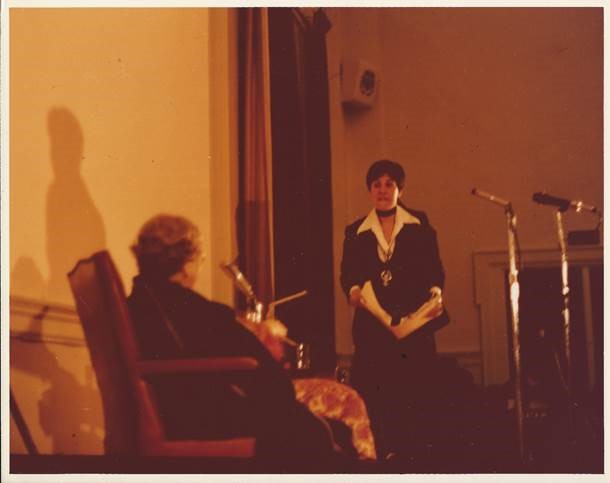Margaret Mead and Me
by Phyllis Chesler

In 1977, I debated the great anthropologist Margaret Mead in Cincinnati. She was best known for her groundbreaking fieldwork in Samoa, which at the time was seen as radically and unacceptably feminist. Eventually, it was criticized as flawed in its methodology. Among her many books were Coming of Age in Samoa and Sex and Temperament in Three Primitive Societies. Mead maintained an office at the American Museum of Natural History in New York City, but spent time at the University of Cincinnati to write.
Mead’s task in our debate was to oppose feminism. To the chagrin of the one thousand feminists who had gathered to enjoy what they hoped would be a matricidal boxing match, Mead and I bonded instead. I presented first. Fifteen minutes into my speech, Mead got up, leaned on her walking stick, slowly and loudly clumped her way to the microphone, nudged me aside, and interrupted me.
“You, young woman, are obviously brilliant. But how many more are there like you in that movement of yours?”
It was a no-win moment. While I was pleased—even thrilled— that I had impressed her, I was also embarrassed and outraged that she had publicly demeaned the movement I represented. I told her: “Dr. Mead, no matter what I say I’m in trouble. If I’m not part of a worthy movement because, in your view, it doesn’t exist, then I’m not that smart after all, am I?”
We laughed. Afterward, Mead and I became friendly colleagues. Later that year, in the late fall, I was seven months pregnant and Mead insisted on coming to see me.
“Being pregnant is more fragile than being old,” she declared. Her first question was: “What are you doing about your nipples?”
My own mother never asked me this question. Mead was blunt, forceful, and unbelievably kind to me. She told me: “Rub them with a rough washcloth, pinch them, toughen them up.”
We talked at length about the problems that arise when an ambitious intellectual woman decides to become a mother. She told me to buy a big house and to find a mother who already has children and needs a home and a family—and to never stop my work, no matter what domestic crisis may arise.
We may not have agreed about certain subjects, but how blessed I was that such a visible grandmother of our American tribe arrived in person to initiate me into the rites of motherhood.
I didn’t know then that she had cancer.